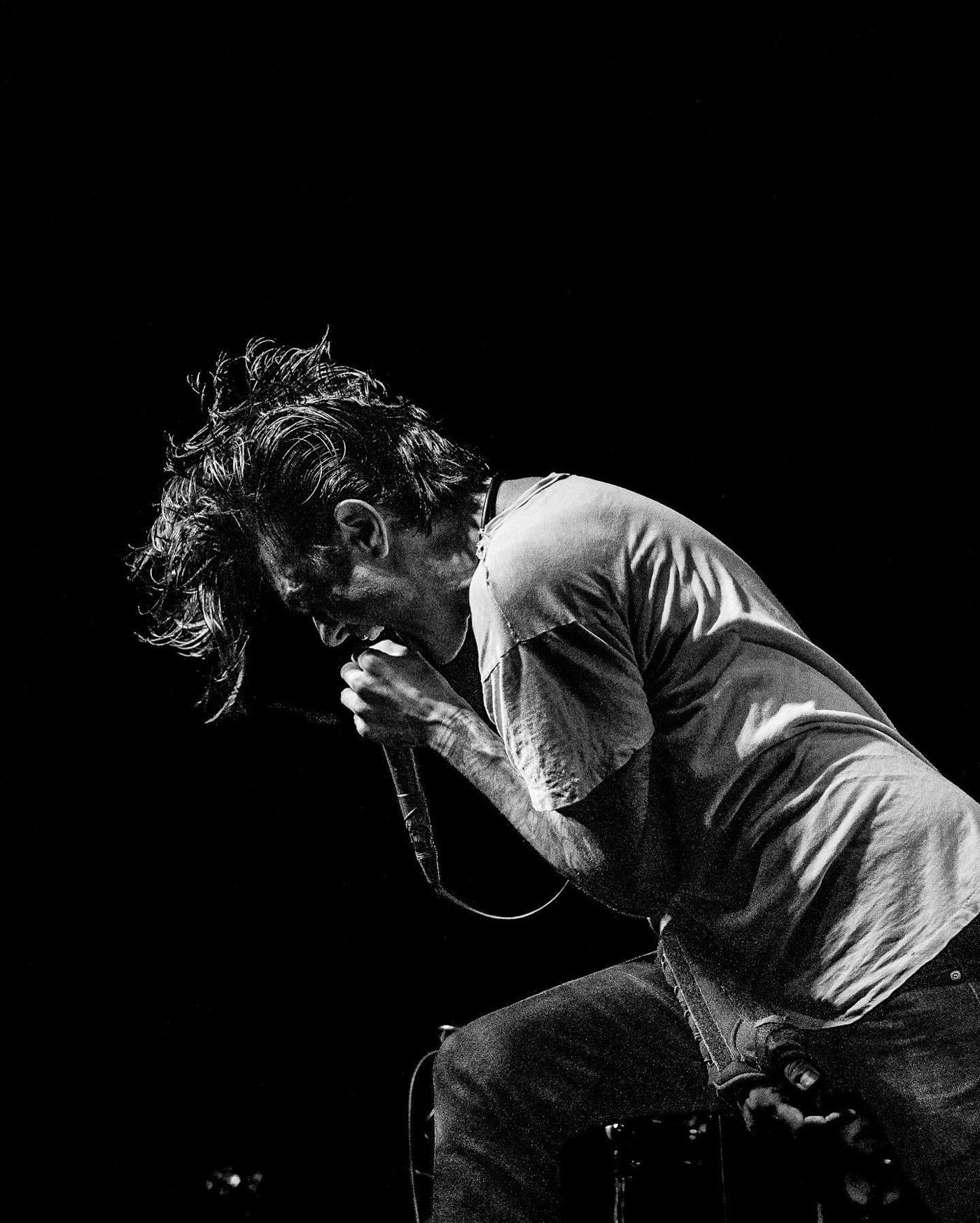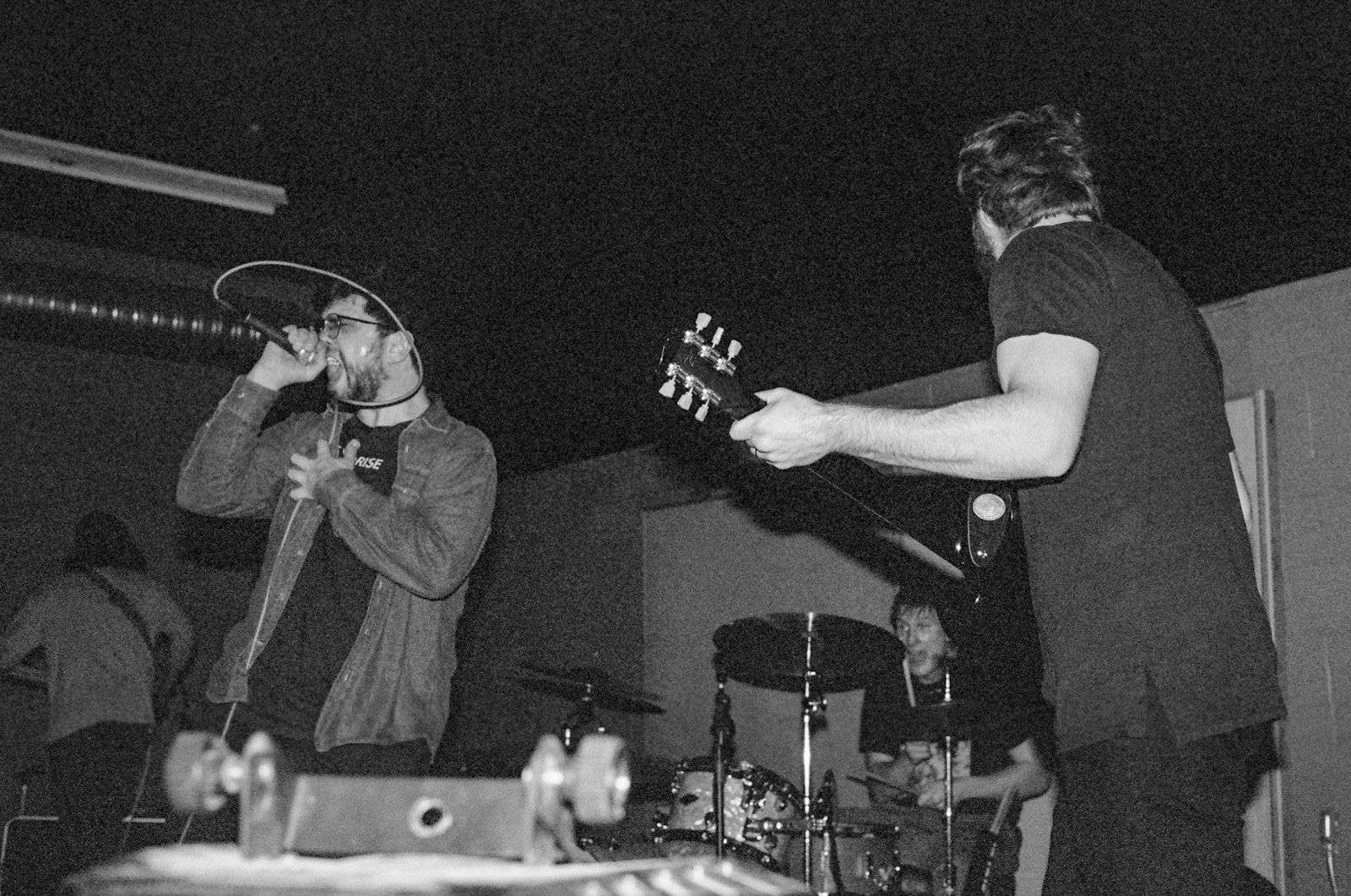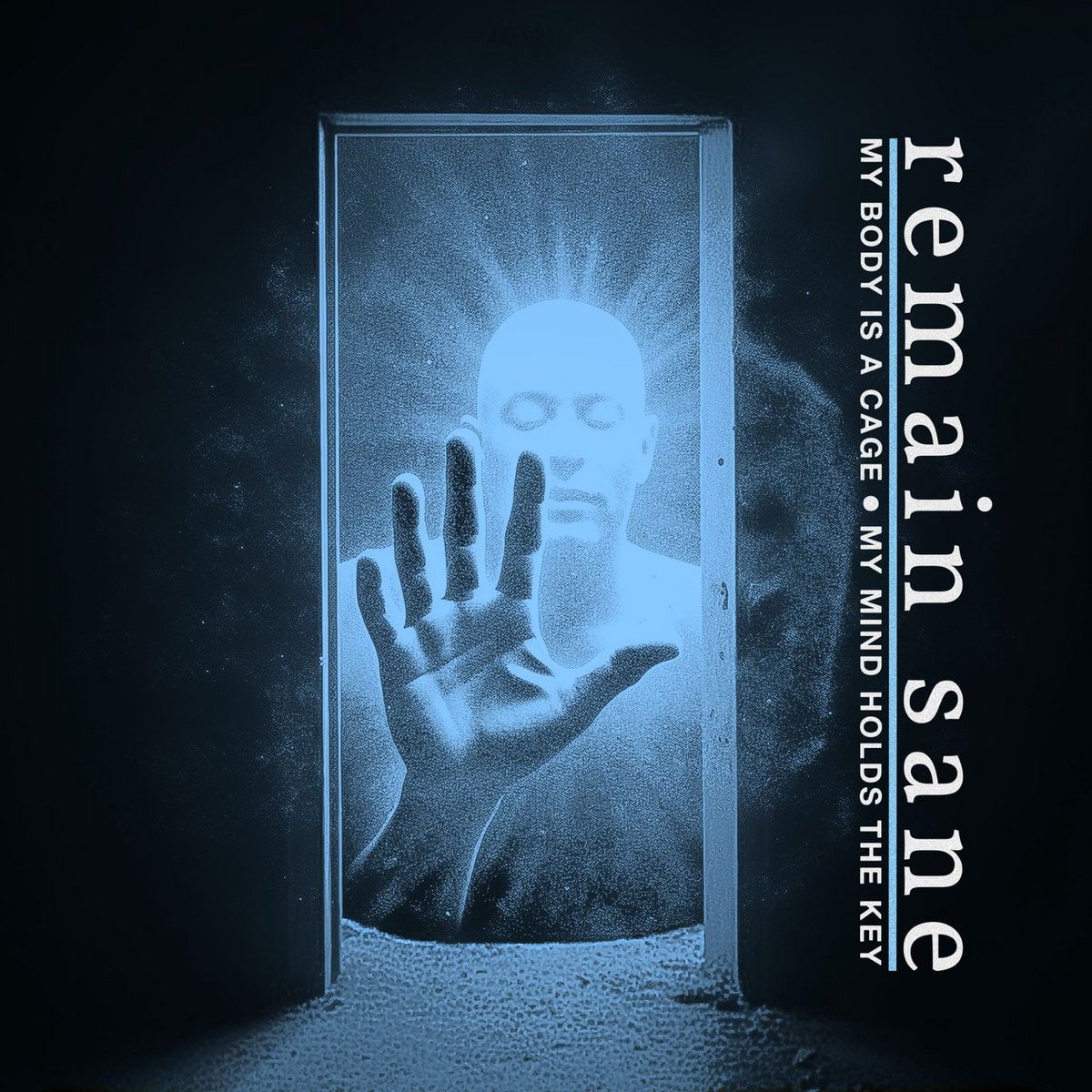The digital age, with its overwhelming ocean of content and instant gratification, might seem a world away from the grimy basements and sweat-drenched gigs that once defined punk. Yet, on September 22nd, another noteworthy beacon cut through the noise of digital content.
The documentary, Don’t Fall in Love with Yourself, became available on streaming VOD platforms, offering an intimate view into Justin Pearson’s tumultuous journey within the west coast punk scene. The movie was recently released on Blu-ray through Vinegar Syndrome and ETR Media, and features limited edition art from the acclaimed artist Steak MTN.
For over three decades, Justin Pearson has stood as a cornerstone of the San Diego hardcore and punk scene, navigating its tumultuous waters with an eclectic array of projects.
From his early days with Struggle to his groundbreaking work with The Locust, Pearson’s distinctive bass lines and visceral vocals have become synonymous with the avant-garde side of hardcore.
His entrepreneurial spirit led to the founding of Three One G Records, a label that’s become emblematic of cutting-edge noise, punk, and grindcore.
Beyond The Locust, Pearson has showcased his diverse musical prowess with bands like Swing Kids, Dead Cross, Retox, Planet B and the more recent ventures of Satanic Planet and Deaf Club. Each project carries Pearson’s signature intensity, while exploring different sonic terrains.
Further solidifying his versatility, Pearson’s collaborations range from drum legend Dave Lombardo, Mike Patton, to Lucien Greaves of The Satanic Temple. Offstage, his endeavors include authoring books and hosting the Cult and Culture podcast.
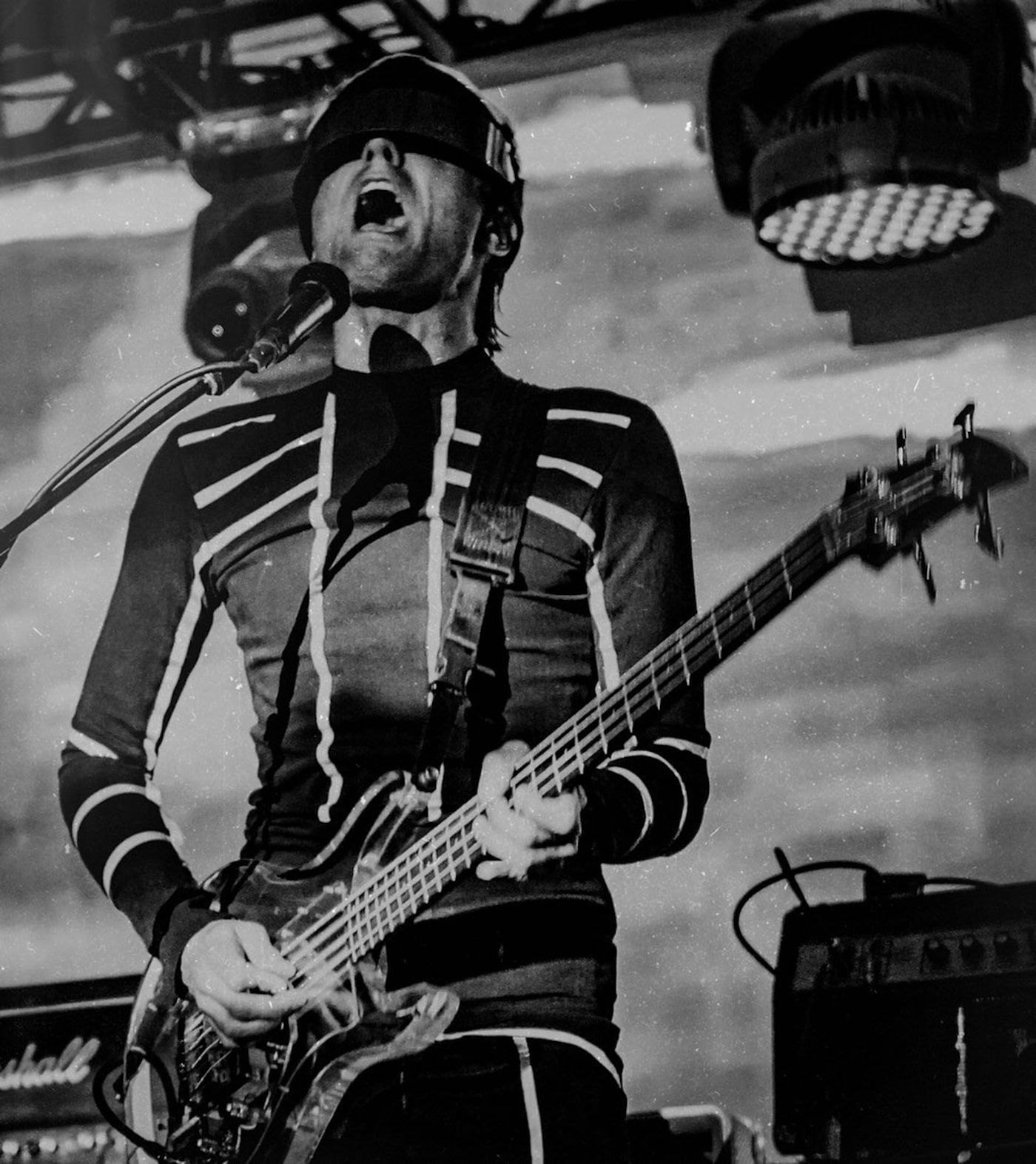
Justin Pearson isn’t just a name on a marquee; he’s a testament to resilience, ambition, and the heartbeat of a movement that refuses to be stifled.
The documentary, which had an impressive run this summer at notable venues such as Saint Vitus in New York and Brain Dead Studios in Los Angeles, stitches together decades of Pearson’s life, utilizing a trove of VHS and MiniDV footage. The intimate glimpses are accentuated by candid conversations with members from iconic bands like Slayer, Touché Amoré, and Cattle Decapitation.
The San Diego punk scene’s vibrancy is evident in the film, with its raw intensity and unapologetic authenticity. Pearson’s Three One G Records has been instrumental in shaping this ethos.
In our conversation with Justin, he emphasized the significance of indie labels, drawing parallels between the magic of pre-internet discovery and the vast possibilities the digital age offers. Despite the oceanic influx of music daily, Pearson’s approach to discerning authenticity remains rooted in real-life connections. The soul of punk, as he sees it, is an ever-evolving entity, continually pushing boundaries and reinventing itself.
Pearson’s musings about streaming platforms and their algorithmic suggestions struck a chord. While these platforms have democratized music access, they’ve also, in some ways, diluted the organic discovery process. Yet, Pearson remains hopeful, citing the boundless opportunities the digital realm provides for artists to create and share their work.
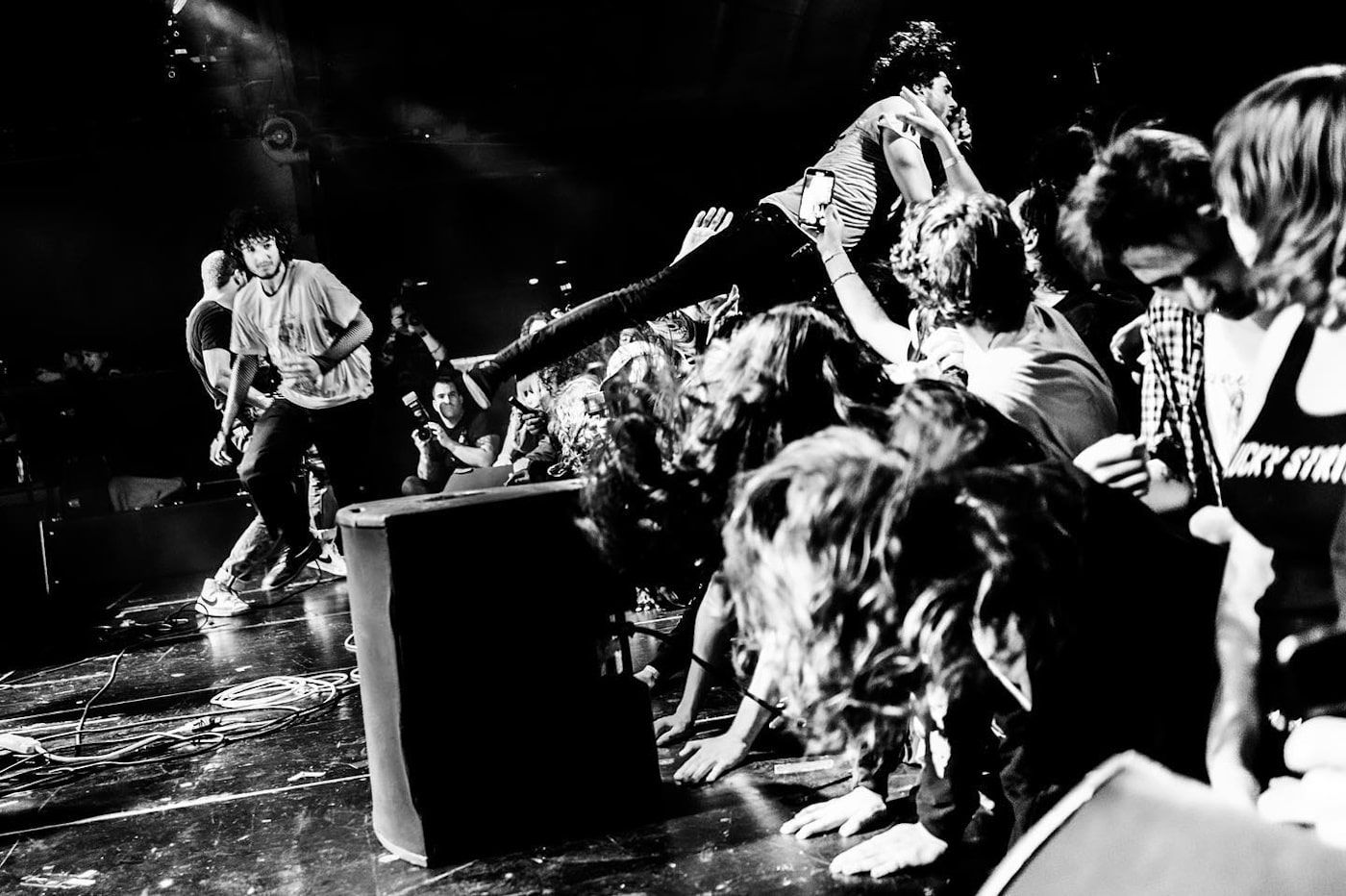
Reflecting on the San Diego punk scene’s transformation, Pearson recounted the community’s intrinsic need for collaboration and unity, emphasizing iconic venues like the Che Cafe and labels like Gravity as pivotal in fostering artistry. Bands like Drive Like Jehu and Crash Worship, he believes, are products of this unique environment.
The documentary’s recent Blu-ray release features limited edition art from Steak MTN, enhancing the visual narrative’s appeal. Directed by Jon Nix and clocking in at 93 minutes, Don’t Fall in Love with Yourself not only chronicles Pearson’s journey but also serves as a testament to punk’s enduring spirit in an ever-changing world.
In an age teetering between tangible grassroots soul and digital abundance, Justin Pearson’s story, captured in this documentary, is a timely reminder of punk’s raw essence, the need for authenticity, and the beauty of unfiltered expression.
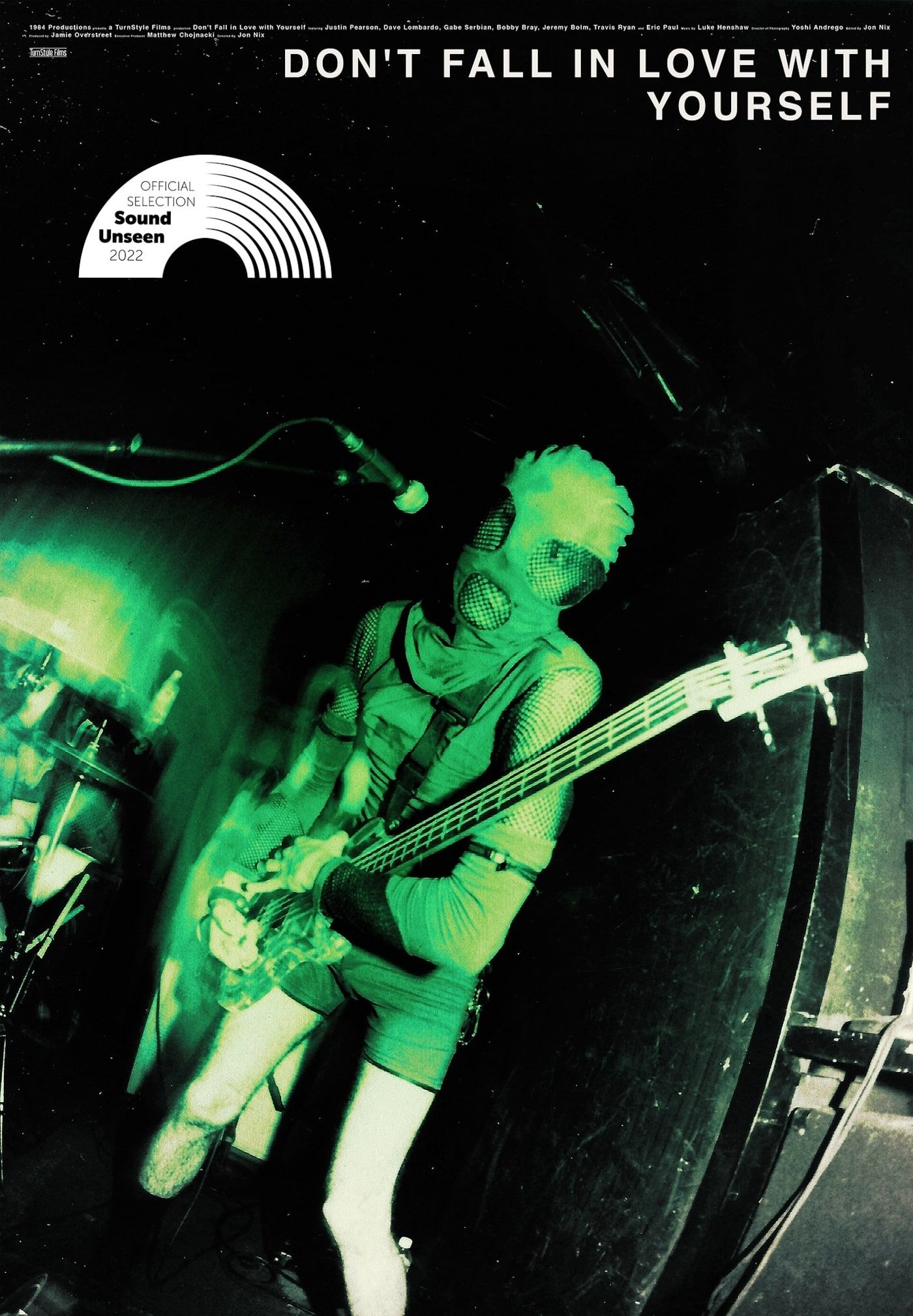
Justin, from skateboarding and absorbing punk bands as a child, to now being the subject of a documentary – how surreal does this trajectory feel to you?
Oh, it’s bizarre. I mostly don’t think it makes sense to have a film about me. I’m nobody in the grand scheme of things. Or even in general. But when the film was completed, this world lost Gabe Serbian. It was then that I realized the film should have been about Gabe. He is absolutely brilliant in it, and more so, he was absolutely brilliant in my life and in so many others.
As a kid, when I discovered skateboarding which ultimately led me to punk and hardcore, I thought there would never be a chance of being in a band, or a decent one, or one that people gave a shit about.
It was odd on the journey to where we are now, discussing the film’s existence.
When I started playing music at the age of fifteen, nobody liked my band. I recall Scott Bartaloni from Heroin telling me that we were bad and should break up. Our guitarist at the time quit shortly after Scott said that to us. Even after that, nobody liked the bands I was in. I essentially interned for myself for about twenty years.
Then again, I live below the poverty level, so I may still be my own intern.
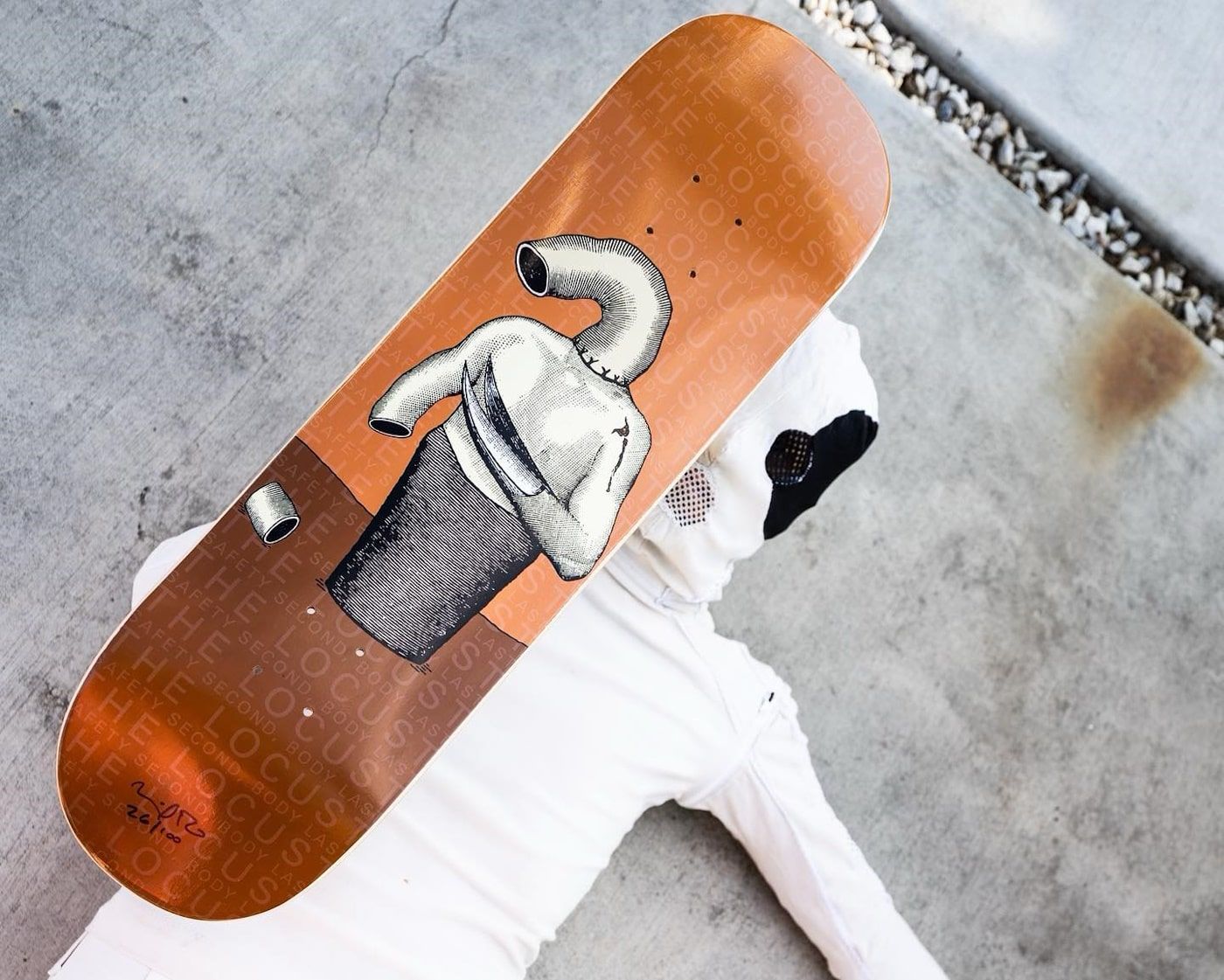
How did the collaboration between you and Jon begin, and how did it evolve over the course of creating the documentary?
It was pretty casual and natural, at least for me. I knew Jon from touring and I really connected with him in the cities I’d run into him in. Again, people typically didn’t like what I was doing, or there was just a lot of added stuff to deal with, trying to play shows and not starve or die. But when Jon and I would cross paths, it was always great to hang out and talk.
At some point, Jon presented the idea to me, to create a film, which I wasn’t fully comprehending what it would be, or how it would end up. But I signed up for it, as I knew there wasn’t anyone else weird enough to dedicate their talents and efforts to focusing on me and the stuff I’m involved in.
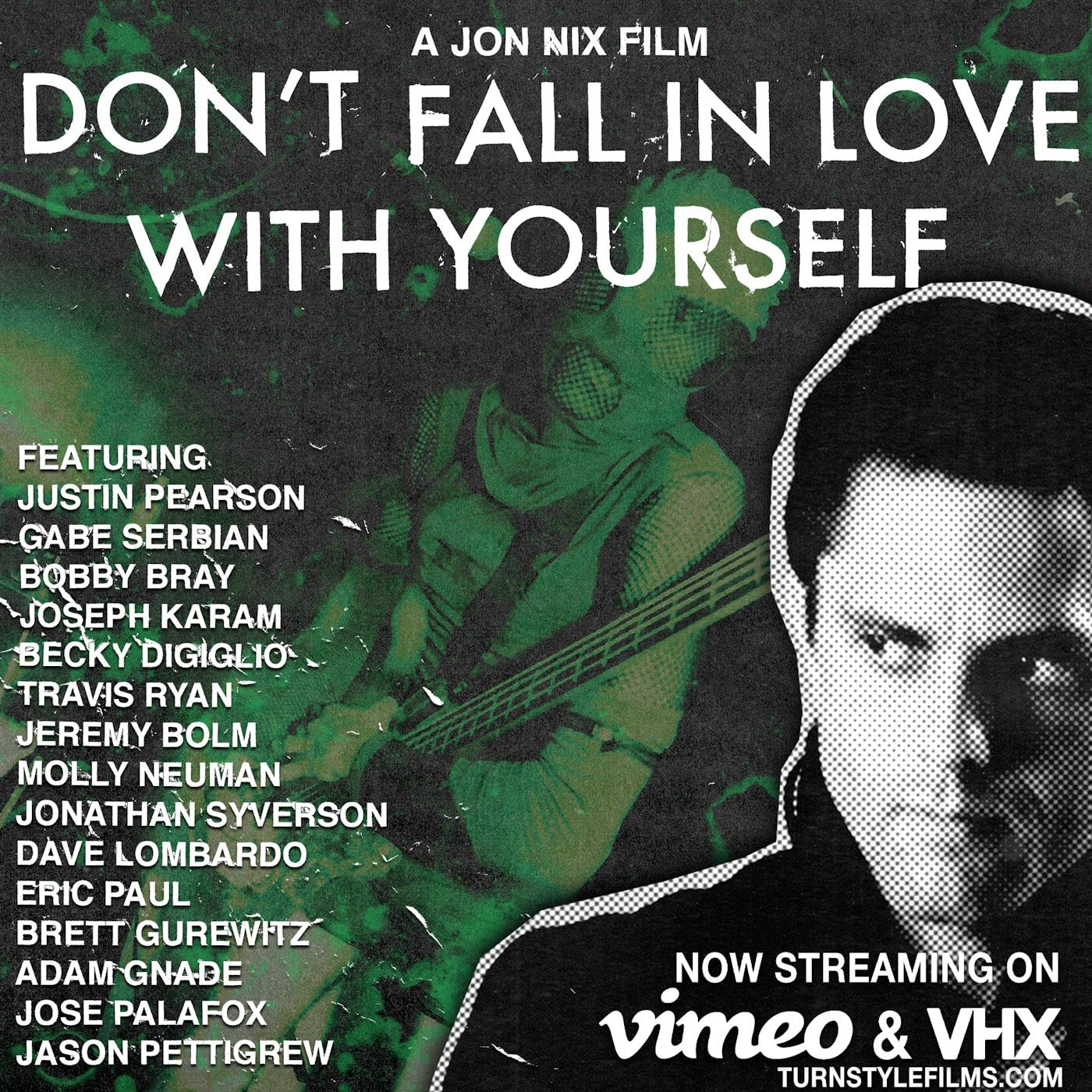
Can you delve deeper into the title of the documentary, “Don’t Fall in Love with Yourself”? What resonates with that particular sentiment in relation to your career?
I wish I had a cooler answer, but when Jon was trying to come up with a name for the film, I threw out the idea of using a title or lyric that I had written. I compiled a handful of things I thought would make sense and also sound like a decent title for a film. Jon picked the one that we landed on, which wasn’t my preferred pick, but it’s his film.
The title comes from a Retox song title. I think the song may not directly translate to the film per say, but more so on its own, just as a statement, and what it says makes sense about the storyline.
I also hate explaining lyrics and what they mean to me.
I write them for the listener, or reader to do what they want with them. I feel that it’s unacceptable to assume that a lyricist would give you additional info on the meaning, especially if that is not their thing.
Even if the words are metaphorically or heck, undecipherable, take what you want from them. I put that shit out into the world for people to do what they want with it. And in relation to the film, just don’t fall in love with yourself. Humans are so often arrogant, and narcissism seems to run rampant more and more these days.
The film touches upon personal tragedies and challenges. Was there a particularly difficult moment for you to revisit during the making of the documentary?
When I watch the film now, it’s really hard. The passing of Gabe gets to me every time. It’s hard for me to see it. I do laugh and love his parts as he was brilliant in it, but I miss him so much that it hurts.
And with the parts about Eric Allen passing, and thinking of how similar he was to Gabe, and how they both were the absolute best at what they did, and left this planet too early, which breaks my heart.
View this post on Instagram
Everything else was pretty chill. My mom was awesome in it, but I worry that if she sees the film she will be pissed at me. She was pretty bummed about my book, From the Graveyard Of the Arousal industry, so I assume she’ll be even more upset about the film.
The documentary chronicles your involvement with several influential bands, from The Locust to Dead Cross. How did each project mold you as an artist?
I assume it was and still is a constant evolution. I think a lot of people like to focus on nostalgia, as it resonates with people, and that is fine for others. But I feel that I prefer to learn from what I’m part of, or what I experience, and grow from it, opposed to trying to recreate the past.
And not only have I been lucky (if luck actually exists) to work with some of the best artists, but most of the people I have created art with have been challenging in some of the most creative ways, which applies growth to who I am.
Ultimately what I think the stuff I have been part of has done to me is allowed me to create in a space that is unique in itself and also in a way that has very few limitations, and specifically for me, little expectations outside of what we get from the actual body of work being documented.
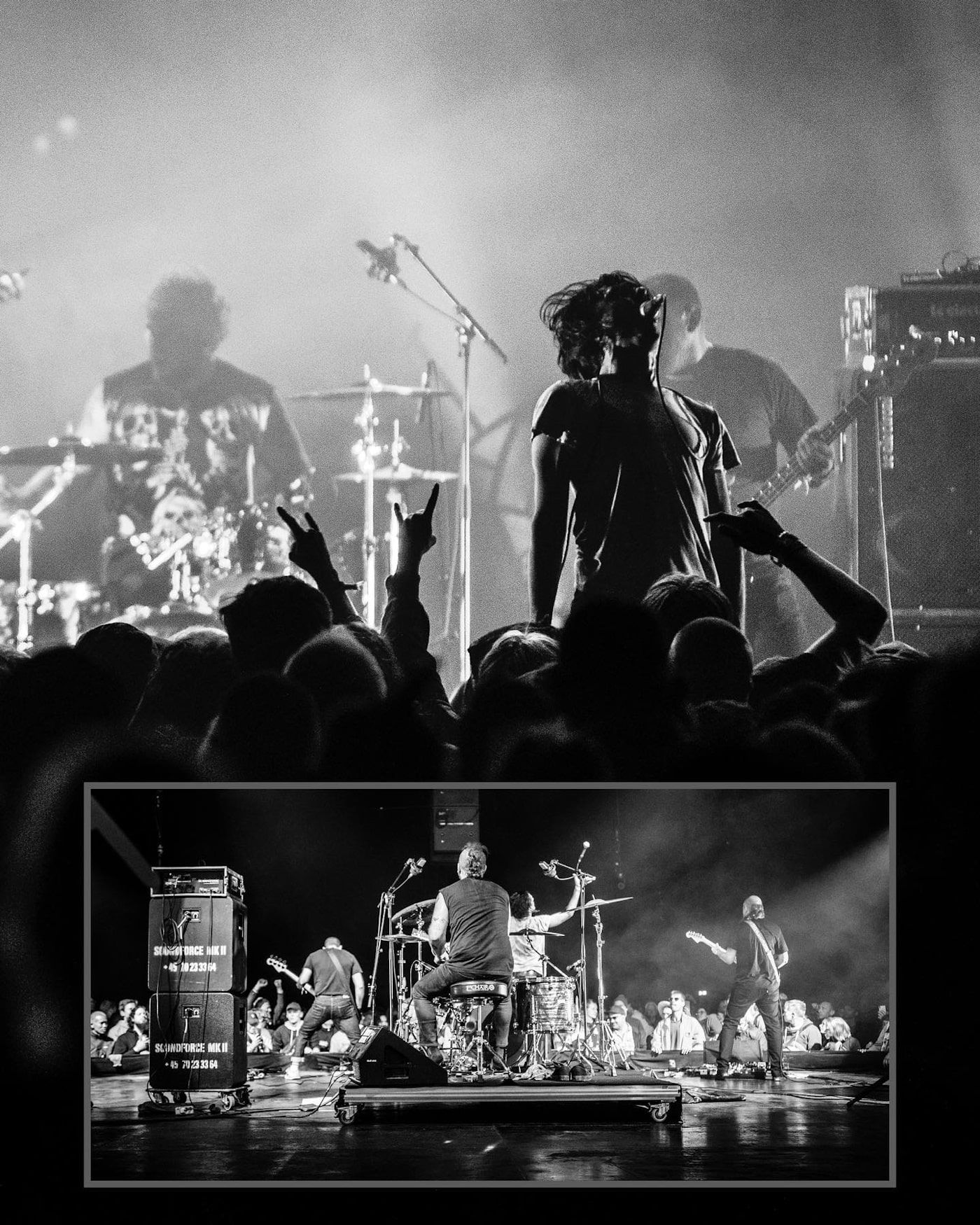
The documentary captures the essence and journey of Three One G Records. Justin, can you describe a defining moment or milestone for the label?
I’m not sure there is just one. There are the obvious shifts in the “industry” and the defining moments that I am now aware of have clarity in retrospect. I started out with no conscious knowledge of what I am supposed to do, and just followed a gut feeling.
That coupled with my inherited ability to hustle and create stuff from nothing have allowed the label to function and exist. But to me, the most important defining moment was seeing that Three One G had become a diverse community, and to the outside world seemed, and still seems odd and foreign.
But to the people who are part of it, and even expanding further to the people who have connected with the label as listeners, comrades, participants, etc, in whatever ways that we all are aware of, really is the essence of what Three One G is.
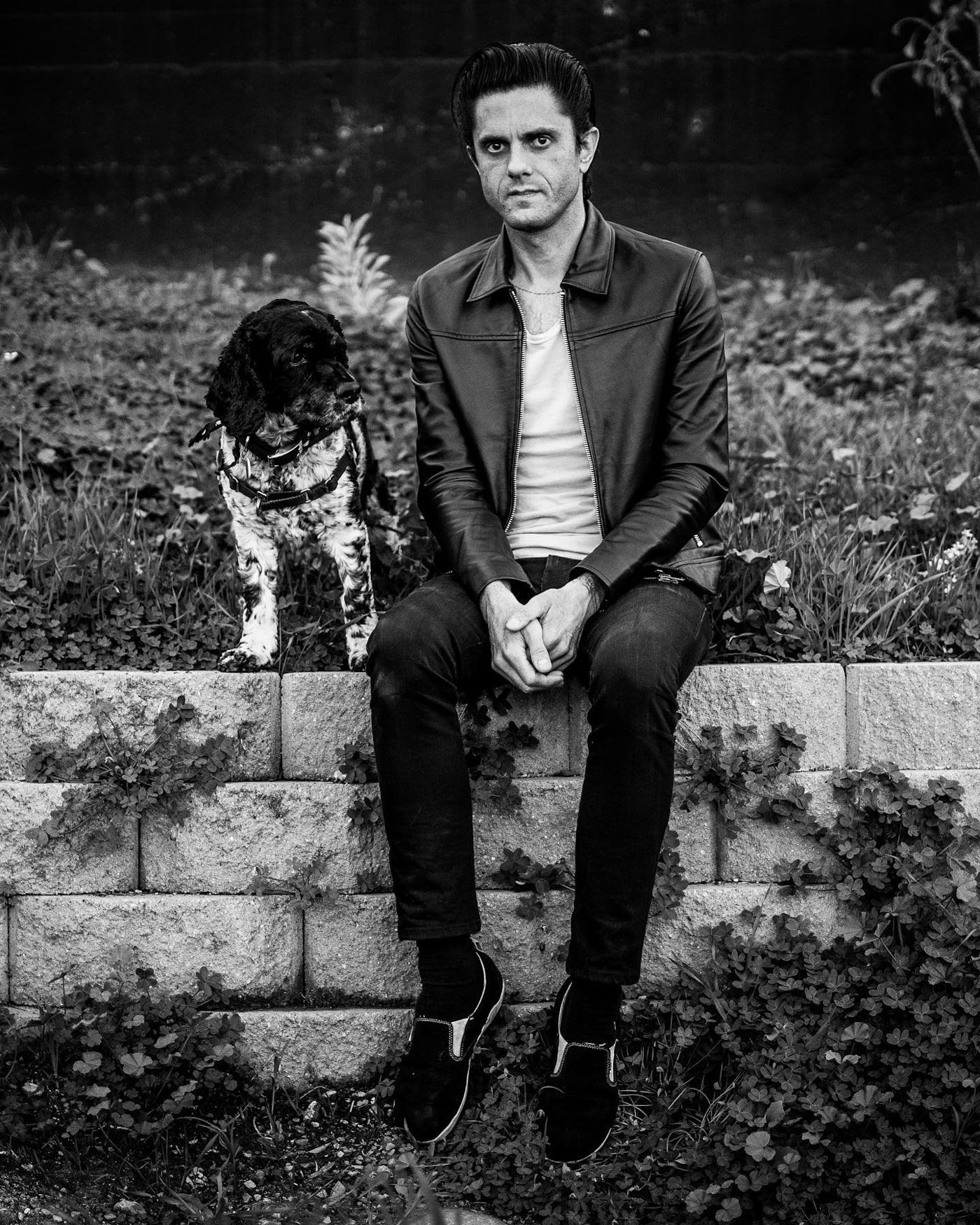
In a world of digital music and instant streaming, how do you both see the importance of indie labels like Three One G and their role in nurturing underground scenes?
It’s really hard to compare and contrast the post internet world and how things are now. I was a much different person in every way back then. But as a younger person, who had done much less pre internet, things still often had a sense of “magic” attached to it. Discovering stuff on my own, in a sincere and organic way, free to algorithms and access to everything all the time, when you found something that resonated with you, it meant so much more.
With that being said, I think the ability to create something almost for free, upload it and share it with the entire planet says a lot as well. So there are the pros and cons of both worlds. Growing up, for me, I discovered labels like Vermiform, Gravity, Discord, Vinyl Communications, etc. and all of those labels were so informative in creating what I perceived as a scene.
Now things seem a bit more blurred…
… and I often can’t place the same level of importance on stuff that can be put out into the world without the same amount of effort that it may have required before the current methods were put into place.
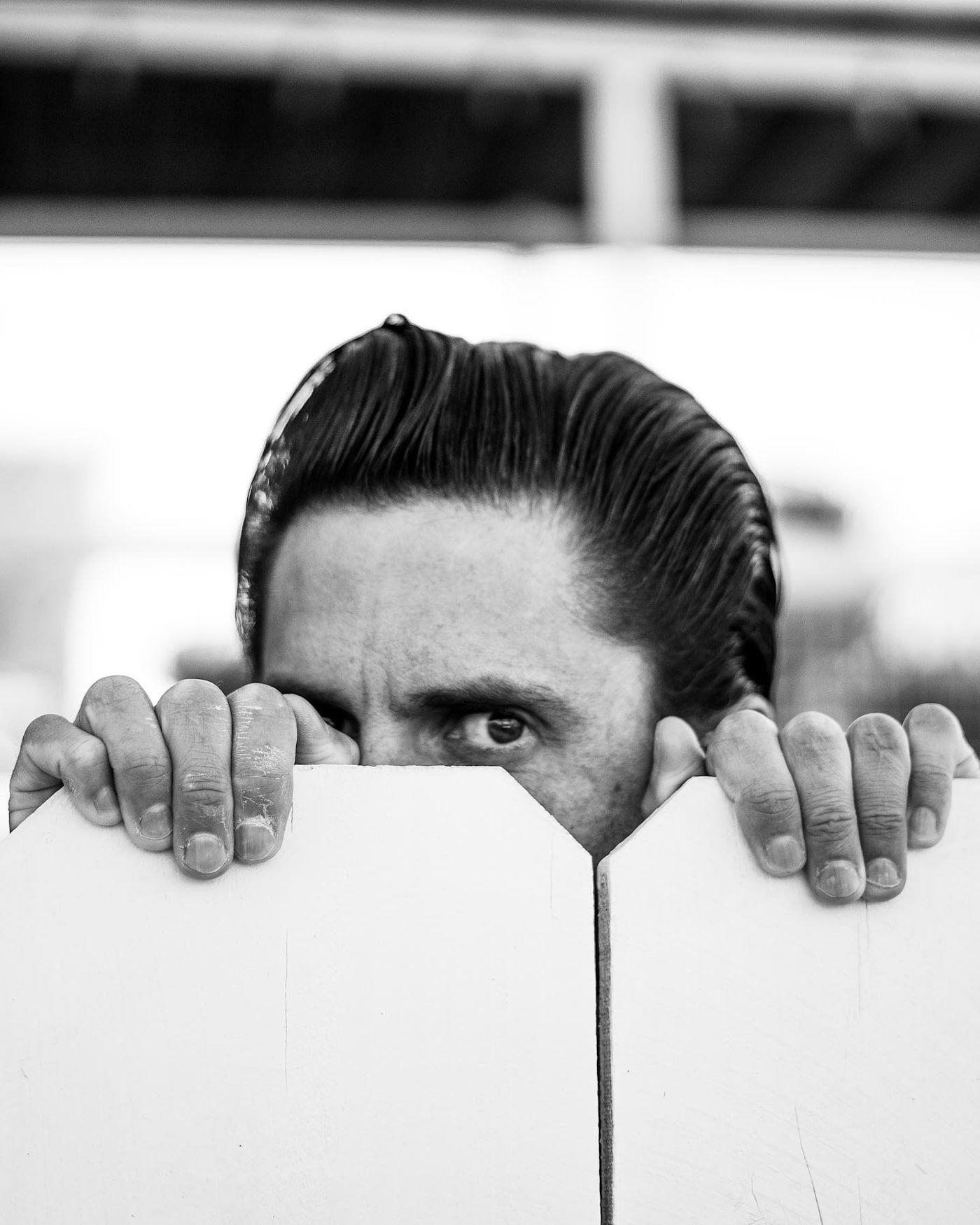
With the label’s continued dedication to pushing boundaries, can we expect more unexpected collaborations or genre-blurring releases in the near future?
Of course. Where you may see a label as something that releases a genre or style, I tend to focus on friends and comrades. I can throw out a few artists and to an outsider, who is certainly welcome to become an insider, it may all seem oddly placed together on a label.
However, I see it all intertwined by the people involved, and more importantly the amount of sincerity and emotion put into their work.
Think about Fuck Money, Sonido de la Frontera, Stress Positions, Venamoris, Planet B, etc and find the common thread. It’s something way more special to the actual essence of what art is. It’s in our DNA.
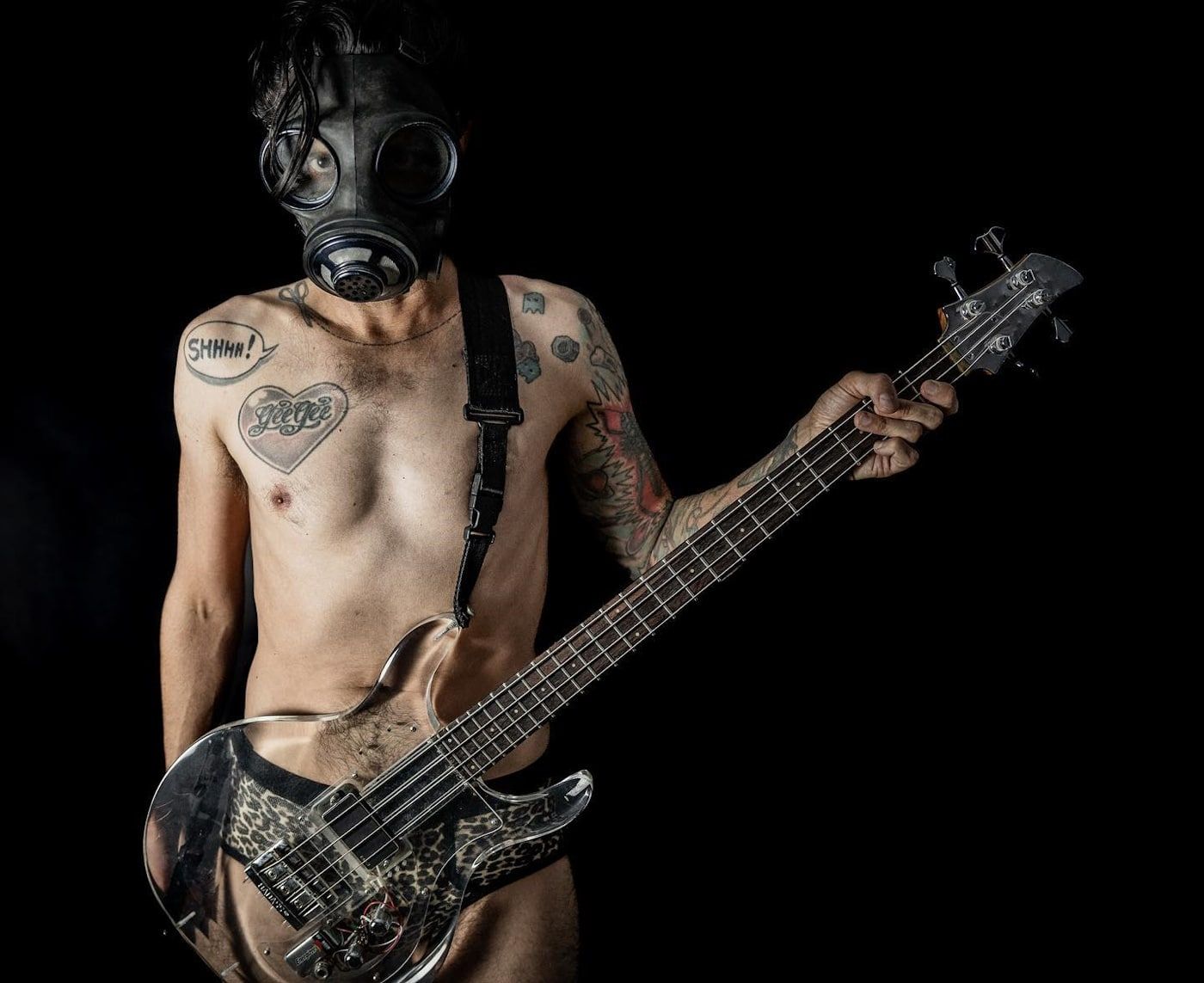
As you’ve observed the evolution of San Diego’s punk scene over the years, what are your most poignant reflections on its transformation and the emerging sounds from the community?
It’s always best seen in retrospect, so at this point in my life, at age 48, things are a bit more clear.
Pre Internet, when I was growing up, there was always this need for community, and San Diego wasn’t very welcoming to all ages stuff, let alone weird stuff. There were pillars of the city for me and my friends, such as the Che Cafe, Off the Record, Pokez, house shows, and labels like Gravity and Vinyl Communications, which all propelled the artistic endeavors of everyone.
It was all of that in conjunction with the fact that we subconsciously (and perhaps consciously) realized that we have to collaborate with each other, and stick together on community aspects to survive and to grow.
I always think back and trip out on the fact that Struggle played with Three Mile Pilot, or The Locust with Rocket From the Crypt.
We could do whatever we wanted, where I think in a lot of places in this world, then, and now, you could not pull that off.
Perhaps it wasn’t the best financial outcome, but it was all in part of survival and necessity, which all harnessed a DIY ethos, even before DIY was a recognized thing in this world. And I think with the insane amount of diversity, across the board, a lot of us were able to create stuff that may have turned out a bit more unique.
Bands like Drive Like Jehu, Crash Worship, Unbroken, etc all probably could not have happened elsewhere.
The digital age has dramatically altered the landscape for independent artists. In your perspective, how has the essence of punk and DIY ethos adapted (or struggled) within this new paradigm?
There are pros and cons to this massively complex subject. The cons are that you can now access everything all the time, so discovering something in a more organic and unique fashion has been diminished. There is also the fact that there is now the ability to do everything yourself, instantaneously, which in my opinion tends to lean towards at times, a rushed “product”.
I feel people nowadays have adjusted to farting out stuff that may only be sub par. It has also made the output into the world a massive sea of “stuff”. I’ve heard that there are up to 300K new songs released every day now, which seems pretty wild. But maybe that isn’t anything to trip on. Because the pros are that now anyone with limited resources, and limited ability can produce and release music to the entire planet instantly.
There is no longer the dependence on labels or distributors. The fact that tools are accessible to almost anyone levels the playing field.
We have entered a new era of DIY.
I’m curious to see what the future holds. And in the meantime, I can remain shocked that Three One G still manages to exist, and that I am not dead…. Just broke.
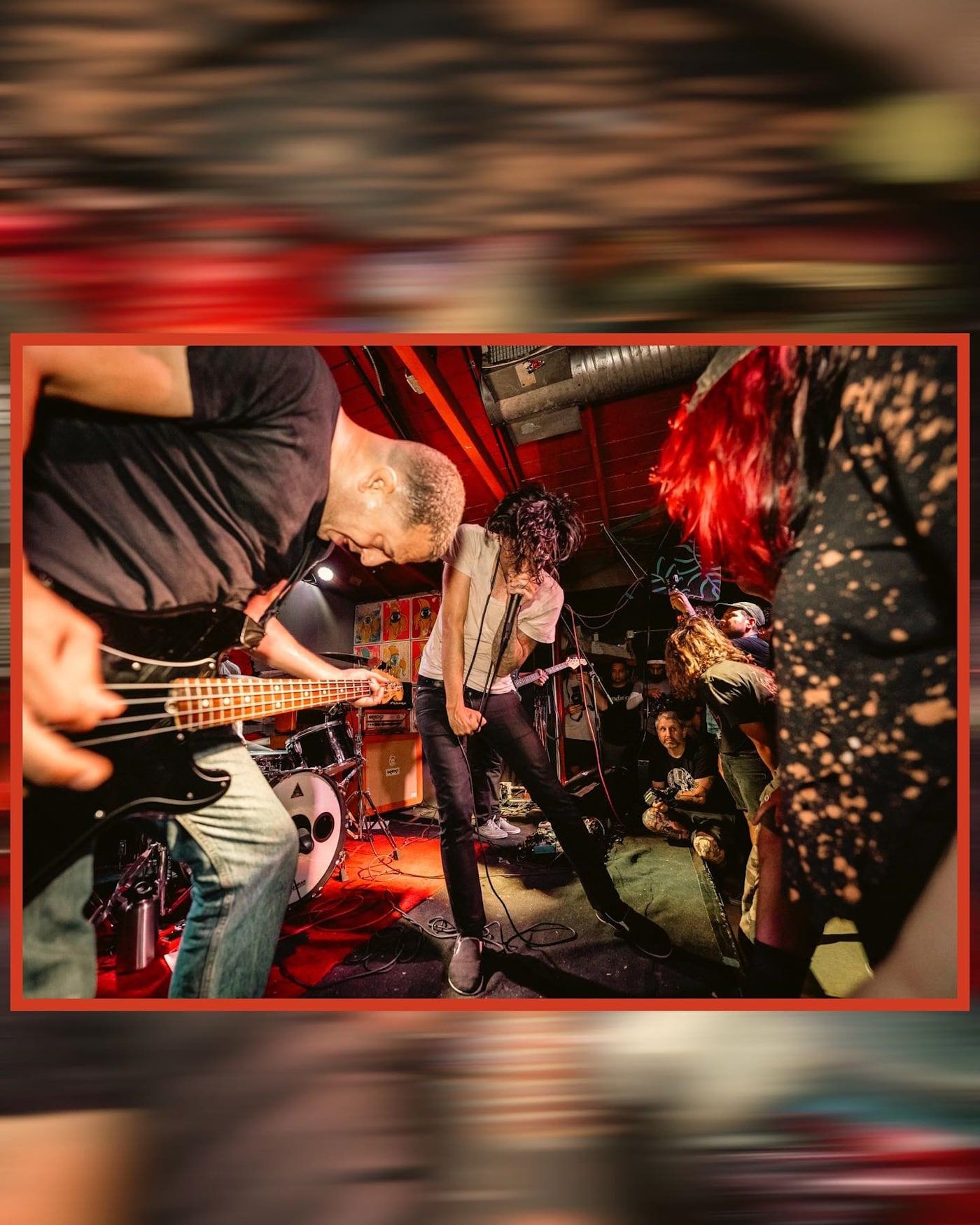
Streaming platforms and social media have dominated the way we consume music. Do you feel these platforms have diluted the raw essence of punk, or provided a broader canvas for its expression?
I struggle with the idea of capitalism, and the fact that I feel there is ethical capitalism, and for some reason, that is pretty rare in this world.
There is not a streaming platform that has the artist in mind. If there was a way to share music digitally, and the income that it generates is mostly given to the artist, I would have a much different opinion on stuff like Spotify, or even Bandcamp.
But it is what it is and I can not change the options I have if I want to exist in the current way people “consume” music.
But if you want to dive into the essence of punk, we would be having this conversation for the next month or so. And not to harp on capitalism, but if you consider all creative, revolutionary, or innovative forms of art, they almost always get diluted in order to mass market it for the consumer.
I think that the raw essence of punk was created and not for everyone. When it was created, and even when it is still created, it’s done in a way that only certain humans can ingest and absorb it. The honesty, intensity, and/ or integrity is usually done without the constructs of creating revenue.
I can speak for myself, with anything I have instigated that falls in the vague realm of art, it was always done for the sake of doing it for myself and never as a means to generate money or find success.
Specifically speaking of streaming platforms, one thing that I have tripped out on from the start was the all mighty algorithm letting the consumer know what they should check out next. If you like _____ you will also like ____.
I don’t stream music.
Not that I am against people doing it, I just know what I like, I prefer to listen to music on vinyl, as an experience, and I typically listen to talk radio.
But I would check out an artist’s “channel” and try to wrap my head around what it is being suggested. I did this with my own bands, knowing in-depth what all of the players’ influences are, what went into the music and so on, but it almost instantly digitally shits the bed. I get that, let’s say, The Locust on Spotify would lead you to Holy Molar. I also get that it would lead you to something like Converge.
But morally and ethically, as well as artistically in my opinion, it fails when it leads you to bands that are not in any way on our radar as artists.
What is the common thread to a band that has no relationship or connection to another aside from the poorly entered metadata on the digital distributor’s backend?
All of this shifts organic influences and artistic output from future art. Is one way better or worse, I don’t know.
In the age of digital abundance, where anyone can release music online, how do you discern and maintain authenticity within the punk genre?
I suppose it comes down to knowing the artists in real life. If it’s ok, I will relate this to Three One G.
People will solicit their work to the label to see if we can release it. I appreciate people even considering the label, and good or bad (in my opinion), I tend to not ever work with someone when that happens. I personally need to know them, see them perform live, and have more depth to a streaming link that was emailed to me.
Three One G gets a handful of artists reaching out weekly, and again, as much as I appreciate even being on people’s radars, I have to pass.
There is the very rare exception where I get an inquiry and it grabs me in some way which prompts me into a deep investigative dive. And when it does work out, it’s magical, and very similar to how it was in the pre internet world.
A good example of this is the recent release of Stress Positions. I was initially blown away by the sounds they provided, and I went into researching them. Once I met them and saw them, I fell in love with the band.
There’s often a nostalgic echo for the days of underground gigs, zines, and tapes. While technology has opened doors, do you ever feel it’s come at the cost of some of punk’s tangible, grassroots soul?
These existential questions are killing me! Ha! (Insert goofy face emoji).
Nostalgia is what it is. I do think that being nostalgic for the sake of nostalgia may hinder the level of progression that one may have with their output.
This question is being presented to someone who ran a label when vinyl, and cassettes were seemingly being relics of the past, while I had rooms filled with vinyl (still do have those filled rooms) and the rise of digital formats and then digital streaming.
But it seems to have circled back and vinyl sales are on the rise. But I’ve also learned to adjust how I run a label in a world that is constantly changing and certainly unforgiving to the survival of small businesses.
The soul of punk will always survive, as it’s not a simple genre, term, or whatever the music industry at large can market.
It will exist outside of those parameters, reinvent itself, mutate and adjust, and at points, defy the ones that do it for the wrong reasons. Punk on a much larger scale is not a marketable commodity. Sure, people make a lot of money off of “punk”. But at some point, the consumer, or maybe I should say, humanity, will find a way to take it back to that thing you call a soul.
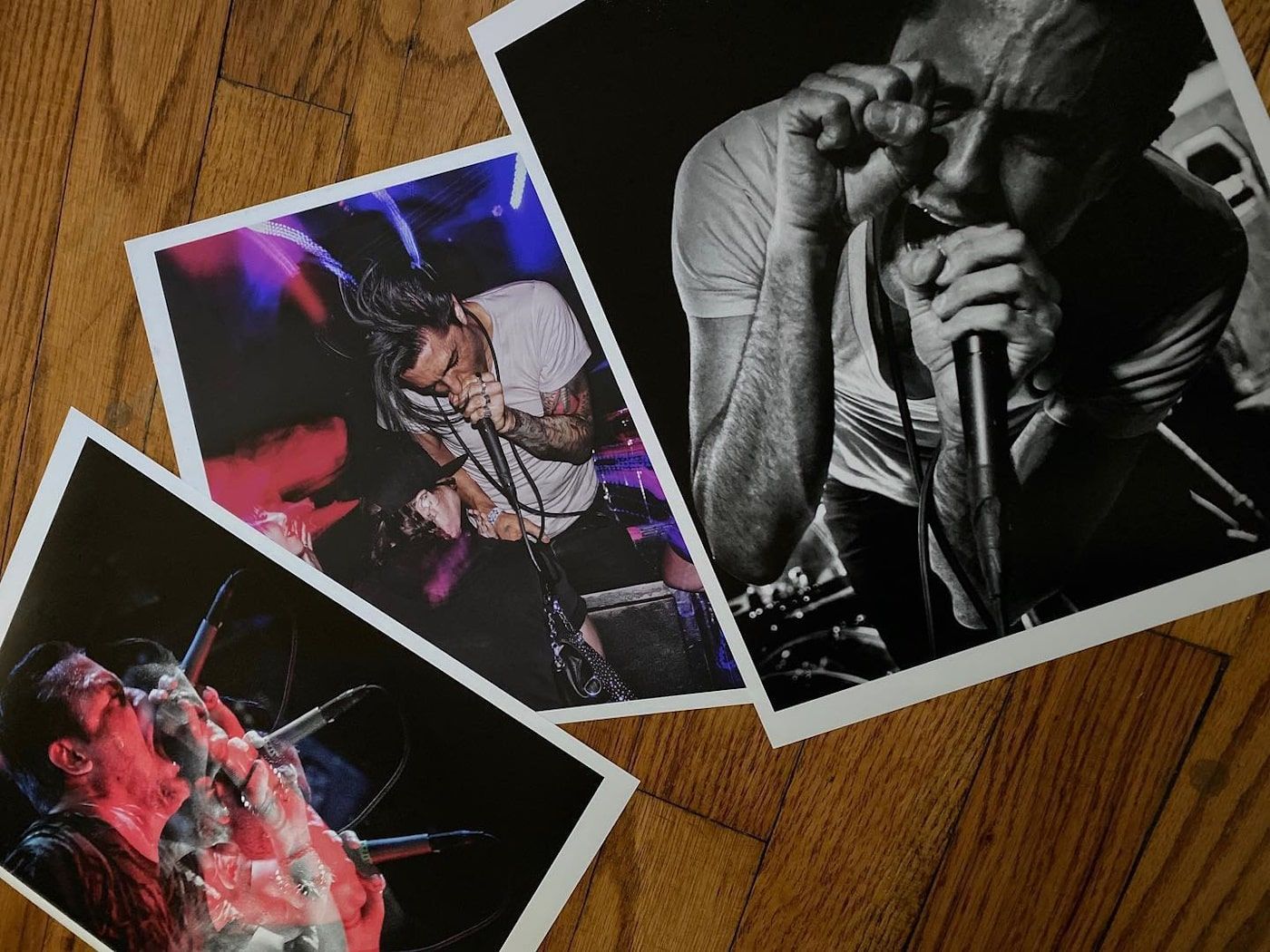
Lastly, with the DIY scene intersecting with digital tools and platforms, are there any particular innovations or movements that excite you or give you hope for the future of punk and independent art in general?
I suppose the ability for anyone to create art and get it out into the world gives me hope.
Is it exciting? Occasionally. It’s like realizing that your first band, or second band kinda sucked. But you had to do that to get to the third and fourth.
So to really be able to answer this question, we should give it time and look back in retrospect and decide if the tools for the future were effective, or just another commodity.
How do you foresee the future of your sound and direction, especially considering your consistent drive to challenge norms?
I don’t foresee it. I never had. I just had a minute starting point, and little to no expectations and then when something happened, it happened.
I never know what I am doing.
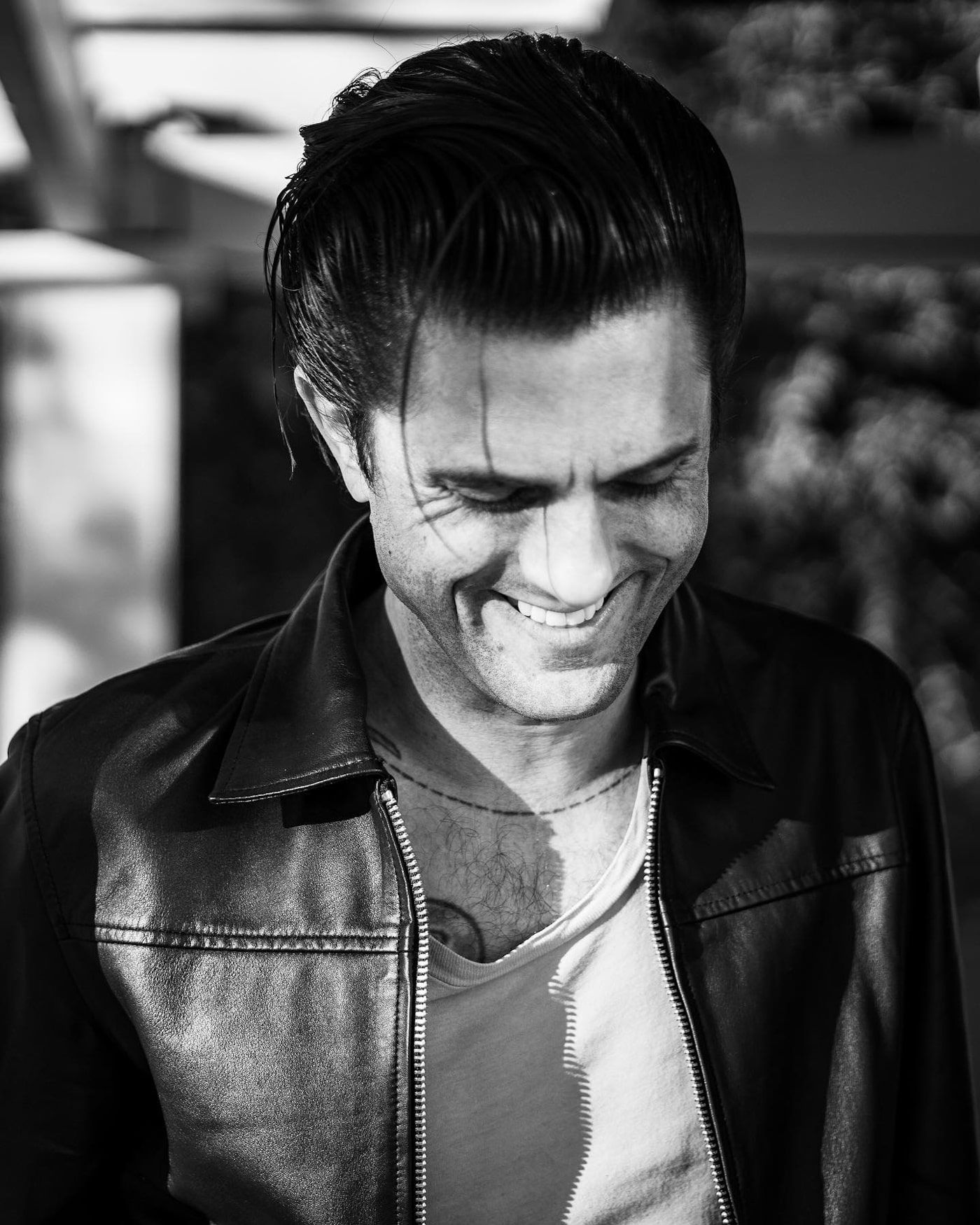
Even as I sit in a van en route to whenever I am supposed to be performing tonight typing this, for the most part, I have no idea what I am doing. I’m fine with that and I embrace it. Does the thing I am doing suck? Perhaps.
Do I enjoy it? Sometimes, but I don’t do it for the ego, or for monetary gain. I do it because something in me says that I have to do it. I don’t know that I have a choice.
I didn’t find punk, it found me.
Want to keep our DIY pulse steady?
IDIOTEQ is a one-man DIY operation, tirelessly spotlighting the local cultural scenes and independent bands that often go unreported elsewhere. Born in the early 00s, this platform has been committed to giving hard-working artists the high-quality coverage they truly deserve.
No ads, no distractions—just pure inspiration and a genuine focus on independent artists and their stories.
Please consider helping keep IDIOTEQ ad-free and in tune with the indie scene by donating today.
DONATE via PayPal 𝗈𝗋 SUPPORT via Patreon
100% of the funds collected go toward maintaining and improving this magazine. Every contribution, however big or small, is super valuable.
Your support ensures that we continue to be a place where you can discover, learn, and get inspired, without any advertising noise. Thank you for being a part of this musical journey.



